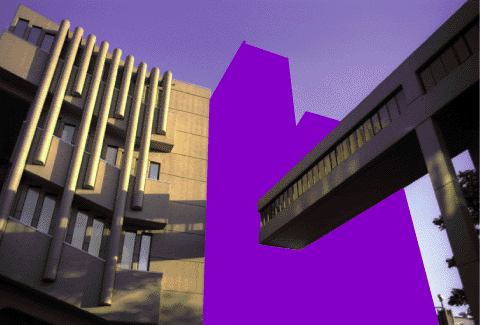WARP CLASSICS
home
News
New Reviews
Reviews Archive
Interview Archive
Hall Of Fame
Links
Contact

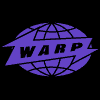
Ten years in dance music terms is a long time. Since the explosion of techno and house in the late 80's many styles have developed and mutated. But far from showing how trendy and disposable it all is, this evolution rather points out the huge amount of creativity and enthusiasm that was engendered in individuals all over the world.
Warp Records is now ten years old. Over the years they have meant different things to different audiences. Techno, ambient, trance, breaks, drill 'n bass - they've released serious statements in many styles.
Warp were first brought to everyone's attention in 1989 through the pioneering hypnotic grooves of the "Northern bleep" sound, which challenged the bass bins of adventurous clubs.
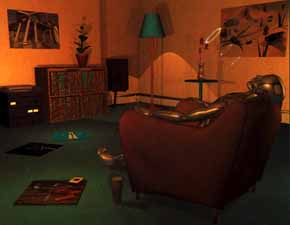
Later Warp made more subtle waves by promoting a non-dance floor "home listening" techno with their Artificial Intelligence series which presented future stalwarts of their catalogue, Aphex Twin, Autechre and The Black Dog. Soon Warp had a reputation as a top artist-oriented indie label, signing the best in the world: Richie Hawtin, Speedy J, Sabres Of Paradise, Kenny Larkin, Joey Beltram, Laurent Garnier and more.
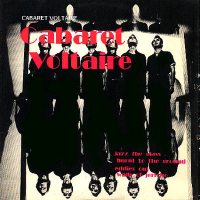
Warp was founded in 1989 by record store owners Steve Beckett and Rob Mitchell. They lived in Sheffield, in the north of England, a decaying industrial city which had a long interest in electronic music, being the home to groups like Cabaret Voltaire, Clock DVA and Human League/Heaven 17 (who all joined together to become Studs for a legendary jam at the University Of Sheffield in 1977 - covering "The Dr Who Theme" and "Louie Louie").
Electronic music had been the music of the future since its appearance in science fiction films in the '50's and the pop charts in the form of tunes like "Popcorn" and "Psyche Rock" in the '60's. Warp choose their name because they wanted something "twisted, futuristic but timeless." An early Sheffield group featuring members of Clock DVA and Human League had been called The Future.
Derrick MayIn the late 80's Sheffield and the north were quite into the futuristic sounds of Detroit techno and Chicago acid house, and the Warp Records store had a section for those rare imports. Cabaret Voltaire embraced the new sounds as they happened, working with house producer Marshall Jefferson in Chicago in 1988, and commissioning remixes by Derrick May and A Guy Called Gerald.
Soon the techno/house sounds were influencing other electronic musicians in Sheffield and the neighbouring Leeds (LFO) and Manchester (Gerald, 808 State), as well as people from the hip hop and breaking squads in those areas.
NOW's DJ Ease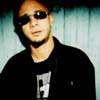
"One thing that was surprising about all this was that most of the people that were doing the tracks stemmed from old break dance crews," recalled Nightmares On Wax's DJ Ease aka George Evelyn, when he visited Toronto for the JVC Urban Rhythm Festival in the summer of 1998. "DJs like the Forgemasters' Winston Hazel and Sweet Exorcist's DJ Parrot and all those guys, we all used to compete against each other as break dancers."
A young trio of hip hoppers from nearby Yorkshire, Unique 3, made the track that got Steve Beckett fired up to start Warp's label. On the Warp Influences compilation you'll find the mix of Unique 3's "The Theme" which founded the "bleep" sound. Their "Original Chill Mix" announced that "we hate all commercial house" while setting the stage for a new techno characterised by icy synth pads, minimalist Casio melodies and reggae-influenced sub-bass lines (submerging below the dub bass used previously by Renegade Soundwave and Meat Beat Manifesto).
Warp tried to sign Unique 3 but were (probably easily) out-bid by Virgin's Ten label, who released one album by the group in 1990, Jus Unique, before dropping the group just as techno hit the charts. Virgin's loss was hardcore's gain as Unique 3's Lee Johnson became junglist L Double, forming the label, Flex Records.
L Double
"Sub bass was a fairly new concept in 1989 - 90," comments L Double via email. "The early club scene in the UK was one that had very few boundaries. People were listening to American but knew that it didn't really reflect their way of life. Our music itself was basic but effective and of course SUB BASS driven." Unique 3's "Weight For The Bass" would have been the first Warp single, but instead the honour fell to the Forgemaster's Detroit-inspired "Track With No Name." The Forgemaster's Winston Hazel was one of the area DJs who was exposing the North's new techno and acid sounds, which were often so fresh they hadn't been pressed yet!
"It was exciting," tells George Evelyn. "We were going down to clubs and listening to people play a new tracks off cassette! Do you know what I mean? Then people would be going down to another club just so they could make sure they got to hear the tune. A few of Warp's first signings were found like that, because they'd go down to a club and hear people play something off a cassette. It was an incredible time."
"People really were getting signed from demos as Unique 3 can vouch," confirms L Double. "Nightmares On Wax are still local to me, and that was how tight is was then and still is now!"
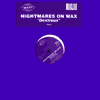
Nightmares On Wax's "Dextrous" was the 2nd Warp release and their first in the top 40. The track was discovered by the label when George came down from Leeds to sell copies of his original version of the track at their shop. "Dextrous" shared the same spacey voice-sampling pads of "Track With No Name," but brought a funky African-type rhythm to it's stripped-down house melody.
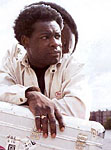
- It was a tribal-house vibe that was shared by No Smoke's "Koro Koro," Bang The Party's "Bang Bang You're Mine" and A Guy Called Gerald's classic "Voodoo Ray" - all heard on the Influences compilation.
"There was the tribal edge to it, just because of the chants and stuff we liked to put in there," said George. "In them times you won't have labelled it "tribal house" or anything. People would probably only come with that recognition after tribal house had happened. Because we were DJs, we just made music that went down in our club. We were doing it with the same approach as you do it in hip hop, you get your sampled snare, you get you sampled kick and put them together in that sense. Obviously the bass lines were more from a reggae background. And the keyboards were part of the techno/Kraftwerk side of it."
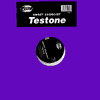
The third Warp single took those elements into the Twilight Zone. Sweet Exorcist's "Testone" began with a cryptic announcement that "everything's ready from the dark side of the moon - play the five tones." The men behind Sweet Exorcist (Cabaret Voltaire's Richard H. Kirk and DJ Parrot (who was also in The Step (WAP 8) and is now All Seeing I) reduced the bleep-y essence of Unique 3's "The Theme" into a minimal Morse code that became the genre's signature sound (sampled by 808 State, and The KLF in their chart topping "3AM Eternal").

"It was quite a special time in music,"Kirk told me in an 1993 telephone interview. "That period in Sheffield there was a lot of things going on. A lot of good clubs and things. Parrott got this idea of making a record from the test tones that are used in studios. And he asked me if I'd help him do this record. So we just went in the studio and started making samples from this oscillator. And the track is built up around that.
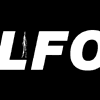
It was Warp's fifth single which blew everything up big time. LFO were a duo of college students from Leeds whose tapes were being played by DJ Martin at Huddersfield's Sunset Boulevard club. Warp's Steve Beckett recalls first hearing LFO's early tracks in a car outside a party they were playing at.
Unfortunately now L.F.O. brings to mind one of those interchangeable boy bands - the Lyte Funky Ones. The good news is that legal letters have been sent!
Warp-net
Matador
